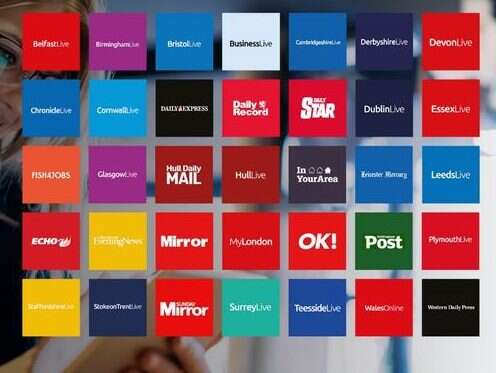
Reach has offered to settle with a small group of staff who put together a claim after their pay was cut by 10% at the start of the Covid-19 crisis.
The temporary pay reductions saved the publisher £4m in 2020.
The Mirror, Express and Star owner, which is also the UK’s biggest regional publisher, cut the salaries of all non-furloughed staff by at least 10% between April and June last year as part of a package of cost-saving measures to get through the worst of the pandemic as advertising and circulation revenues fell.
Board and senior editorial and management staff had a 20% pay cut while everyone else saw their salaries reduced by 10% for three months – although Reach said no-one’s pay would dip below the living wage.
Reach has now offered to reimburse the losses of 10% for a small group of staff from across the company who lodged an employment tribunal claim for unlawful deduction of wages.
The deadline for staff to respond to the offer was on Wednesday (14 April).
Other staff members who were not involved in the claim will not get the money back. Press Gazette understands some who had originally expressed interest in taking part in the claim withdrew to concentrate on subsequent plans to cut 550 jobs in response to the revenue hit from Covid-19.
In 2020 Reach also saved £7m from the suspension of bonuses, meaning total staff costs were down £22.9m to £217.2m.
One of the staff members involved in the claim, who asked to remain anonymous, told Press Gazette: “Reach breached our contracts and unlawfully deducted our wages and after 12 long months we’ve finally had it returned to us.
“The company refused to entertain the idea of returning the 10% last summer and insisted we all simply draw a line under it and move on ‘for the sake of the business’. No one wanted it to come to this point where we had to mount a legal challenge but they left us with no other option.
“I’m glad this is all over and the money has finally been returned as it’s a massive weight off of my shoulders.”
Reach offered all employees around £400 in shares at the end of 2020 “in recognition of their contribution and achievements during a challenging year, and to ensure all Reach colleagues have an opportunity to share in the future success of the business”.
A Reach spokesperson said: “Reach made a temporary salary cut between April and June 2020 when the business saw significant impacts from Covid-19 on advertising and circulation revenues.
“This was one of a number of cost reduction measures, impacting all stakeholders, that were taken to protect the business, its news titles, and jobs during an unprecedented crisis.
“Normal pay restarted in July last year, and an all-colleague share award was made in December in recognition of the commitment of all Reach colleagues during a difficult year.
“A small number of colleagues chose to make a claim via the tribunal process and we are in discussions with these individuals with the aim of seeking a resolution.”
Around a fifth of all Reach staff were put on furlough at the start of the pandemic receiving 90% of their wages, with a total of £7m claimed from the Government in 2020 to cover the mandated 80%.
The National Union of Journalists previously criticised Reach for implementing the pay cuts after giving chief executive Jim Mullen and chief financial officer Simon Fuller almost £300,000 in bonuses plus around £1m in shares in its long-term incentive plan.
The company had a net cash surplus of £33.2m as of 26 April last year which increased to £42m by December.
[Read more: Mirror staff reject 1% pay rise offer from management and mull industrial action]
Reach was not the only publisher to implement pay cuts in the first throes of the Covid-19 crisis:
- The Telegraph cut staff salaries by 20% in May but later paid the money back (as well as furlough money back to the Government) after remaining profitable.
- Mail and Metro owner DMGT offered staff shares as compensation after asking those earning £40,000 or above to take a cut of between 1% and 26%.
- Non-furloughed Newsquest staff faced a 15% wage cut on the amount they earned above £18,000 while JPI Media put a similar cut in place up to 15%.
- The Evening Standard cut pay for non-furloughed staff on more than £37,500 a year by 20%.
- City AM cut staff pay in half in April 2020 as it first suspended its print run.
- The FT cut pay and working hours by 10% for all non-editorial staff earning £50,000 or more.
- The Independent’s 20% pay cut affected staff earning more than £37,500 a year.
- News UK asked staff to volunteer for unpaid leave or reduce their working hours, with a corresponding cut in pay.
Email pged@pressgazette.co.uk to point out mistakes, provide story tips or send in a letter for publication on our "Letters Page" blog
